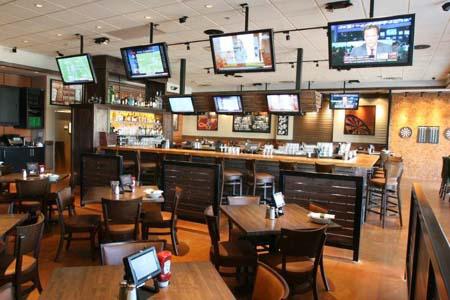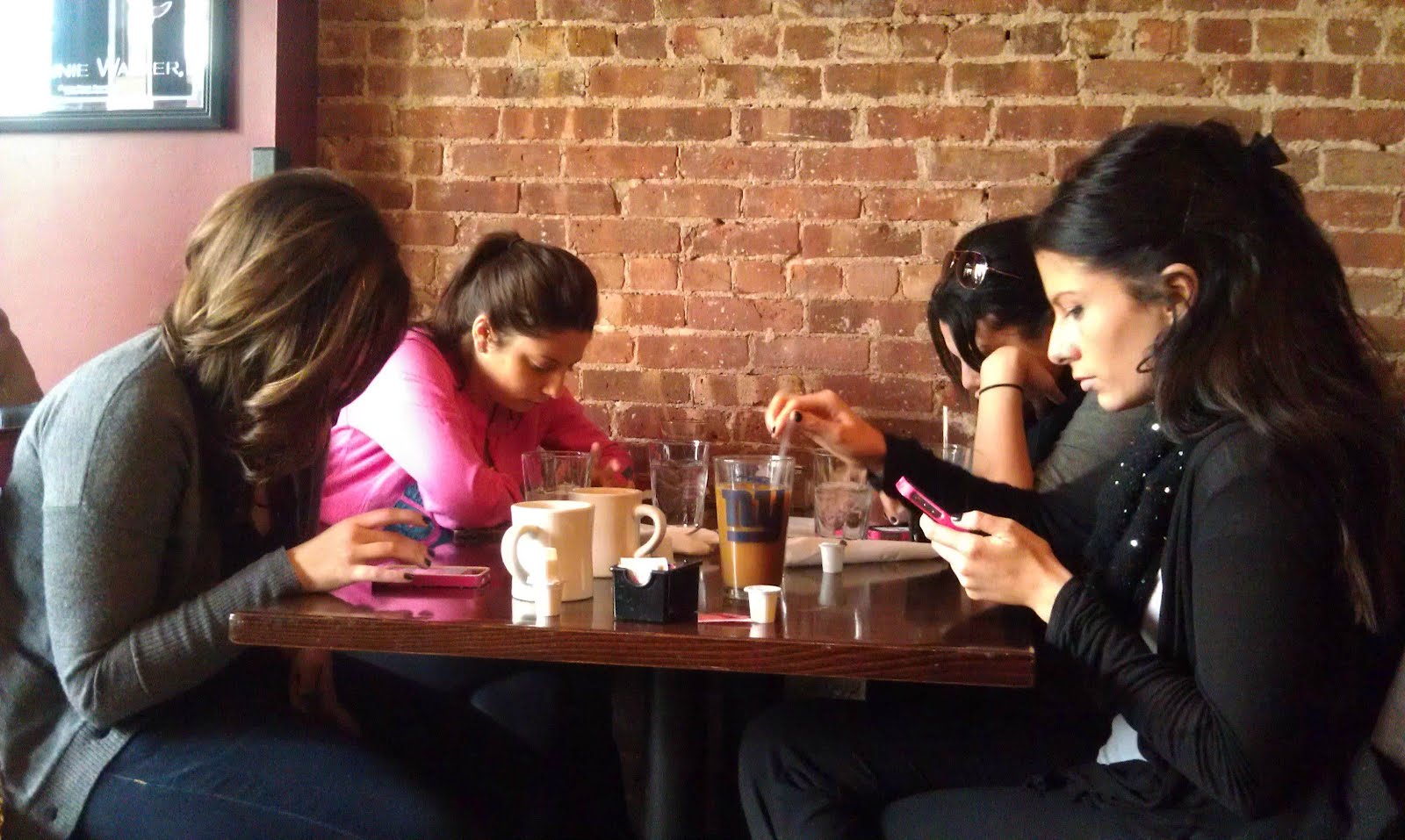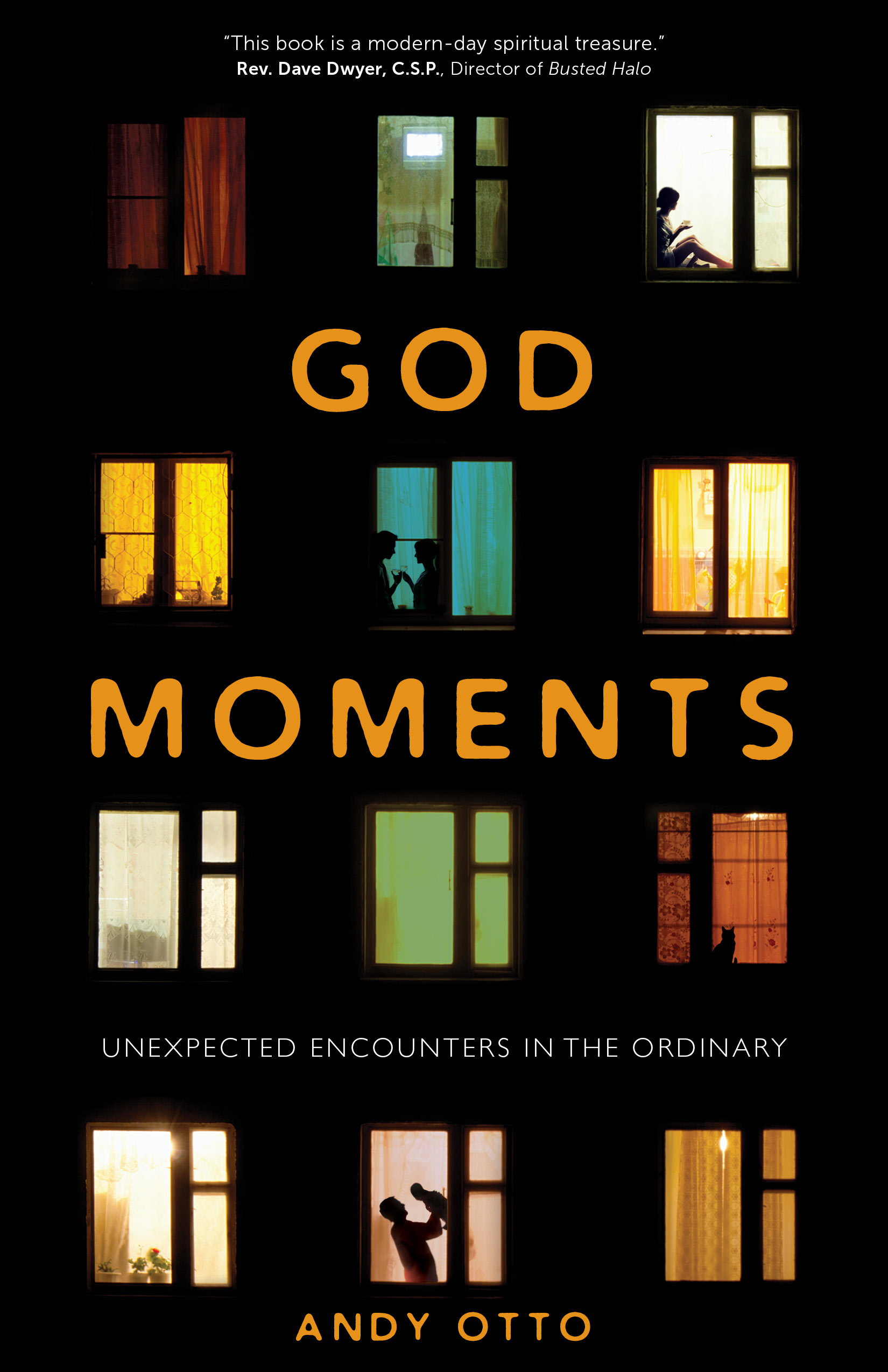 Have you noticed that more and more restaurants and bars are adding TVs? I’m especially bothered when places that boast a heavy theme, like Johnny Rocket’s or a 1920s-style speakeasy, place TVs around that are completely out of theming. Atmosphere is important. And so is the relationship you bring with you. A few months ago I went to a Japanese teppanyaki restaurant with two friends and since it wasn’t busy the television they had on the wall across from the table wasn’t on. Three times we were asked if we wanted the television on and three times we declined in the interest of conversation and presence to one another.
Have you noticed that more and more restaurants and bars are adding TVs? I’m especially bothered when places that boast a heavy theme, like Johnny Rocket’s or a 1920s-style speakeasy, place TVs around that are completely out of theming. Atmosphere is important. And so is the relationship you bring with you. A few months ago I went to a Japanese teppanyaki restaurant with two friends and since it wasn’t busy the television they had on the wall across from the table wasn’t on. Three times we were asked if we wanted the television on and three times we declined in the interest of conversation and presence to one another.
When I go out to eat or drink with someone I care about my intent is to be fully with that person and share a meal or drink. Now TV is not bad in and of itself of course. But have you ever noticed yourself that in a moment of pause or silence in the conversation you or your companion’s eyes wander to the closest TV?
Is silence so difficult with others? What are we so afraid of? Despite my experience and comfort of silence as a hospital chaplain I still face challenges of silence in non-ministerial settings, especially with people I don’t know too well. Questions come up: Is the other judging me in the silence? Are they uncomfortable being with me? Should I fill the silence? Steve Stutz, in an excellent blog post about silence, talks about Una Agnew’s writings on the topic. Her and his words speak to that discomfort I and so many others feel:
Agnew points out that silence “is difficult, not only because in silence does the Spirit surface, but also my past surfaces in silence, especially the unresolved areas.” This mixture of God’s presence with one’s own history can prove to be an uncomfortable challenge. Some of the thoughts and emotions which tend to surface during these periods are things which she categories as “the things I can’t tell myself.” For example, the truth that one is lonely, afraid, or angry. These and other items which one has “pushed to the background” begin to surface as one descends into silence.
 The point is, silence can be a great spiritual practice, revealing things in one’s own heart, spirituality, and relationships. The truth is, much of modern society—with so much attention-snatching stimulation—provides a way to drown out those “voices” in the silence. We damper those things by looking up at the TV or immediately checking our phone.
The point is, silence can be a great spiritual practice, revealing things in one’s own heart, spirituality, and relationships. The truth is, much of modern society—with so much attention-snatching stimulation—provides a way to drown out those “voices” in the silence. We damper those things by looking up at the TV or immediately checking our phone.
Have you considered that God speaks through the silence? In my post “A dial tone? What’s that?” I talk about the safe constancy of the dial tone. When we pick up the phone and hear nothing we feel the discomfort and think something’s wrong. Yet God is the constancy that lies within the silence. Music, liturgy, and speech all have “in-between” spaces of silence. It is necessary silence—necessary because it gives room for truths to emerge that otherwise would stay dormant beneath the guise of TV, noise, Facebook notifications, and fear.
This is why some religious orders eat meals in silence. Many retreat houses offer silent retreats as a counter-cultural opportunity for God to speak in the silence, for our fears and hesitations and secrets and questions to come up so we can address them in prayer. Stutz continues:
Agnew explains that “silence is a very sophisticated practice,” and how in her own life, sometimes her silence is “deep and quiet and tranquil” but at other times her silence is “noisy and full of little skeletons in the cupboard.”
But perhaps letting those things—good and bad—out of the cupboard in the silence is what is needed. Push your boundaries of comfort and let moments of silence happen as they come. Don’t go right for the TV.

Related posts:
Listen to an audio version of this post…
Music by Kevin MacLeod









Trackbacks/Pingbacks